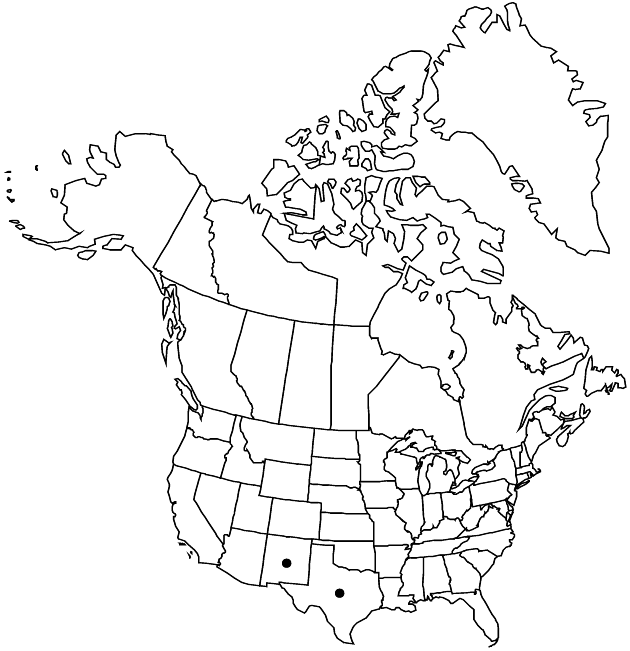Difference between revisions of "Chaptalia texana"
Leafl. Bot. Observ. Crit. 1: 191. 1906.
imported>Volume Importer |
imported>Volume Importer |
||
| Line 50: | Line 50: | ||
|publication year=1906 | |publication year=1906 | ||
|special status= | |special status= | ||
| − | |source xml=https:// | + | |source xml=https://bitbucket.org/aafc-mbb/fna-data-curation/src/2e0870ddd59836b60bcf96646a41e87ea5a5943a/coarse_grained_fna_xml/V19-20-21/V19_21.xml |
|tribe=Asteraceae tribe Mutisieae | |tribe=Asteraceae tribe Mutisieae | ||
|genus=Chaptalia | |genus=Chaptalia | ||
Latest revision as of 19:50, 5 November 2020
Leaves petiolate (petioles 1/8–1/3 lengths of blades); blades obovate to ovate or elliptic or sublyrate, 3–21 cm, margins lobed to denticulate, abaxial faces thinly gray-tomentose, adaxial faces green-glabrate. Heads nodding in bud and fruit, erect in flowering. Peduncles ebracteate or bracts 1–2, 13–34 cm at flowering, 16–46 cm in fruit, not dilated distally. Florets: outer pistillate, corollas evenly cream colored, turning crimson, laminae 0.2–0.8 mm wide; inner florets bisexual, fertile. Cypselae 11.5–13 mm, beaks filiform, lengths 1–1.6 times bodies, faces sparsely to moderately papillate (bodies and beaks). 2n = 24.
Phenology: Flowering Mar–Jun.
Habitat: Slopes in thin, rocky (limestone) soils, usually in woods with abundant oaks
Elevation: 200–1500 m
Distribution

N.Mex., Tex., Mexico (Chihuahua, Coahuila, Nuevo León, San Luis Potosí, Tamaulipas, and others).
Discussion
Selected References
None.